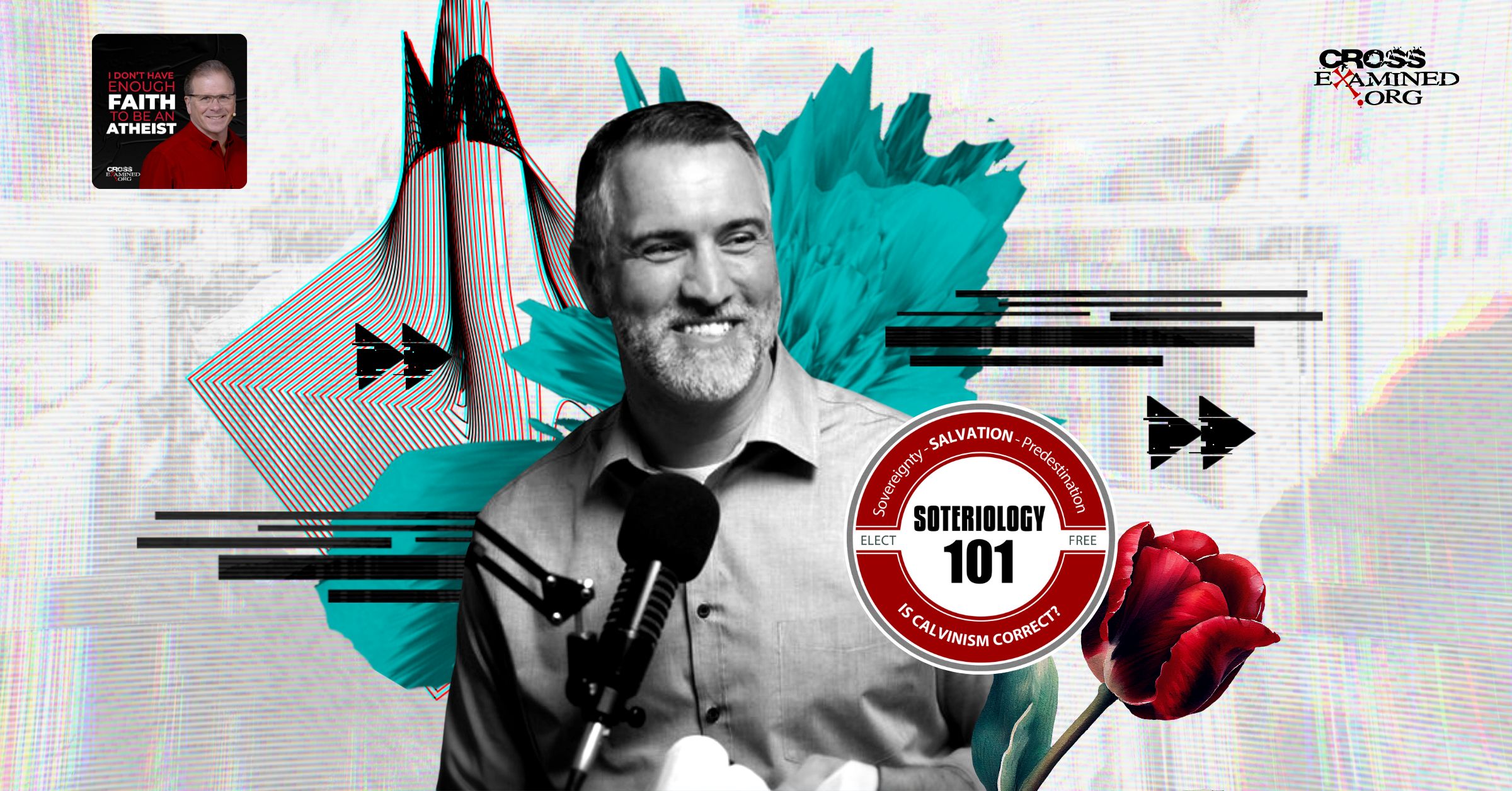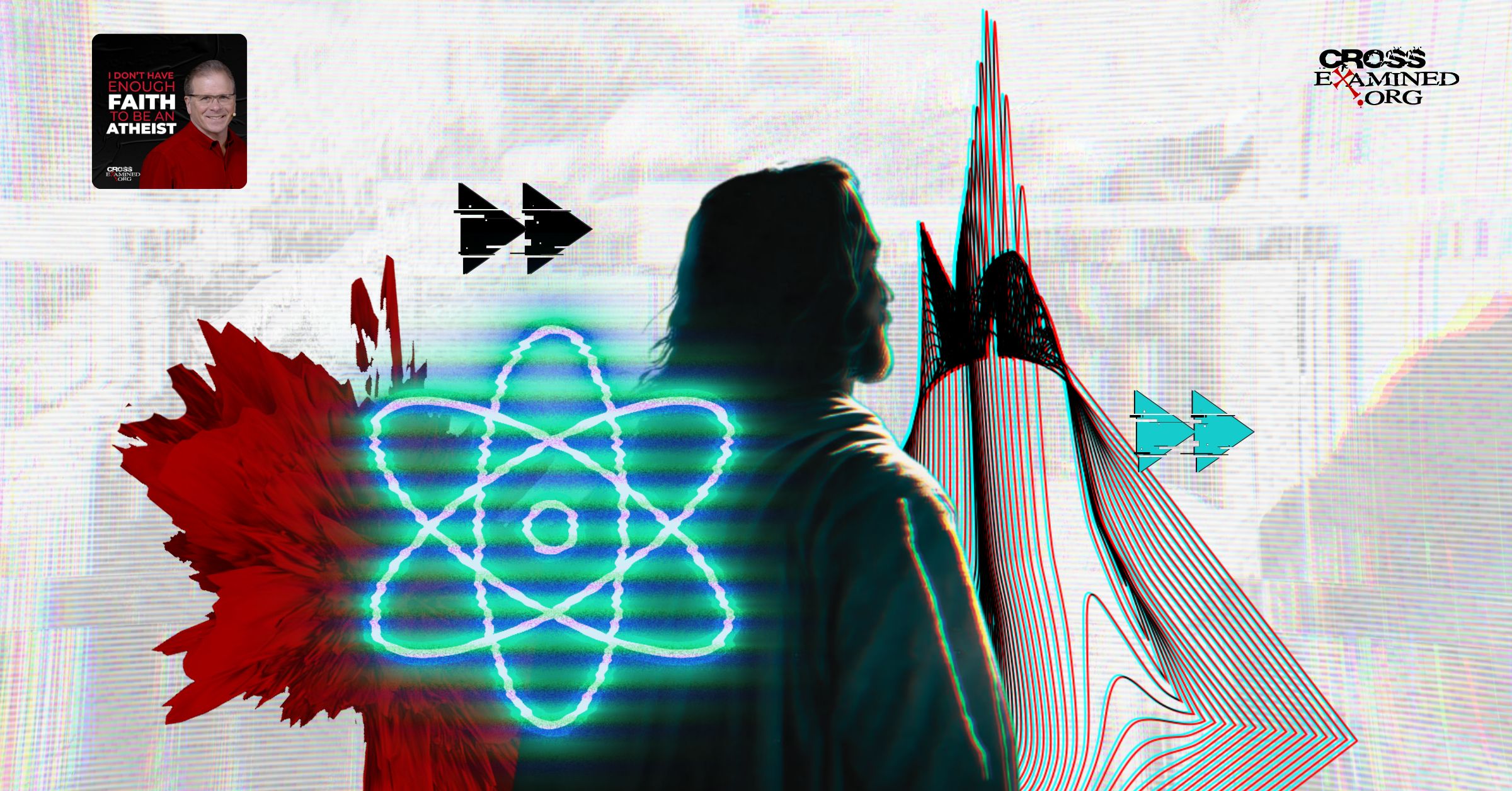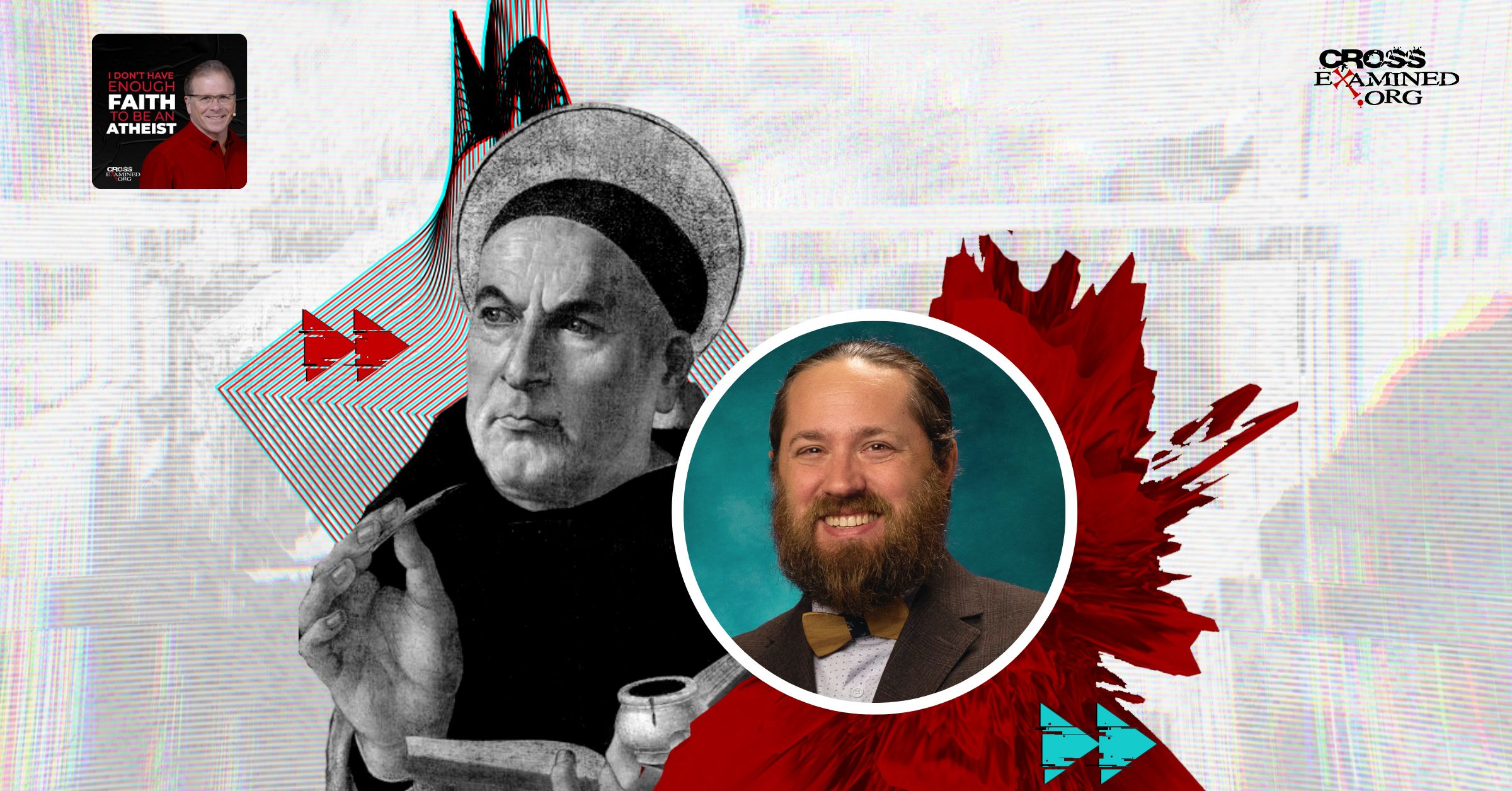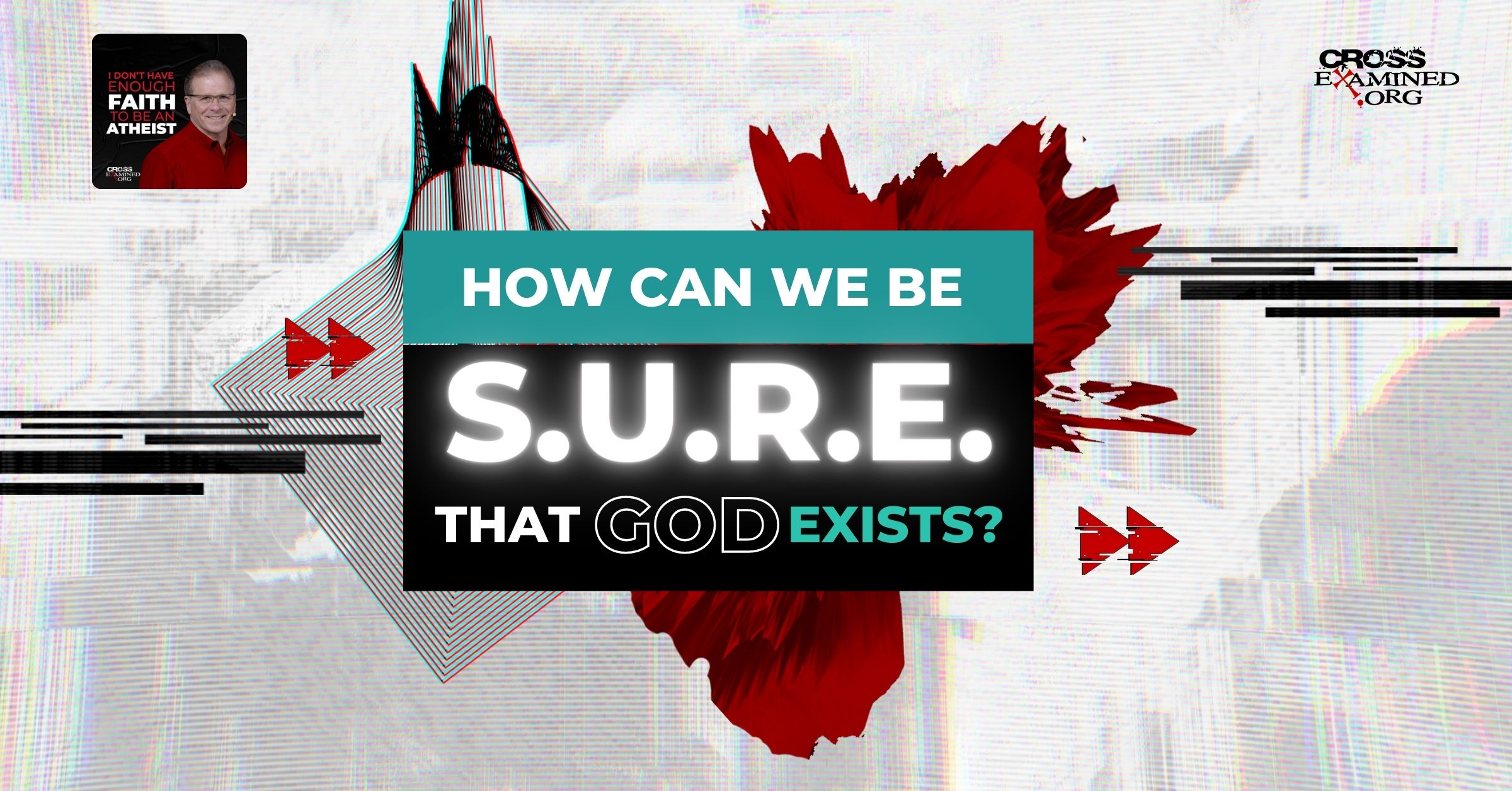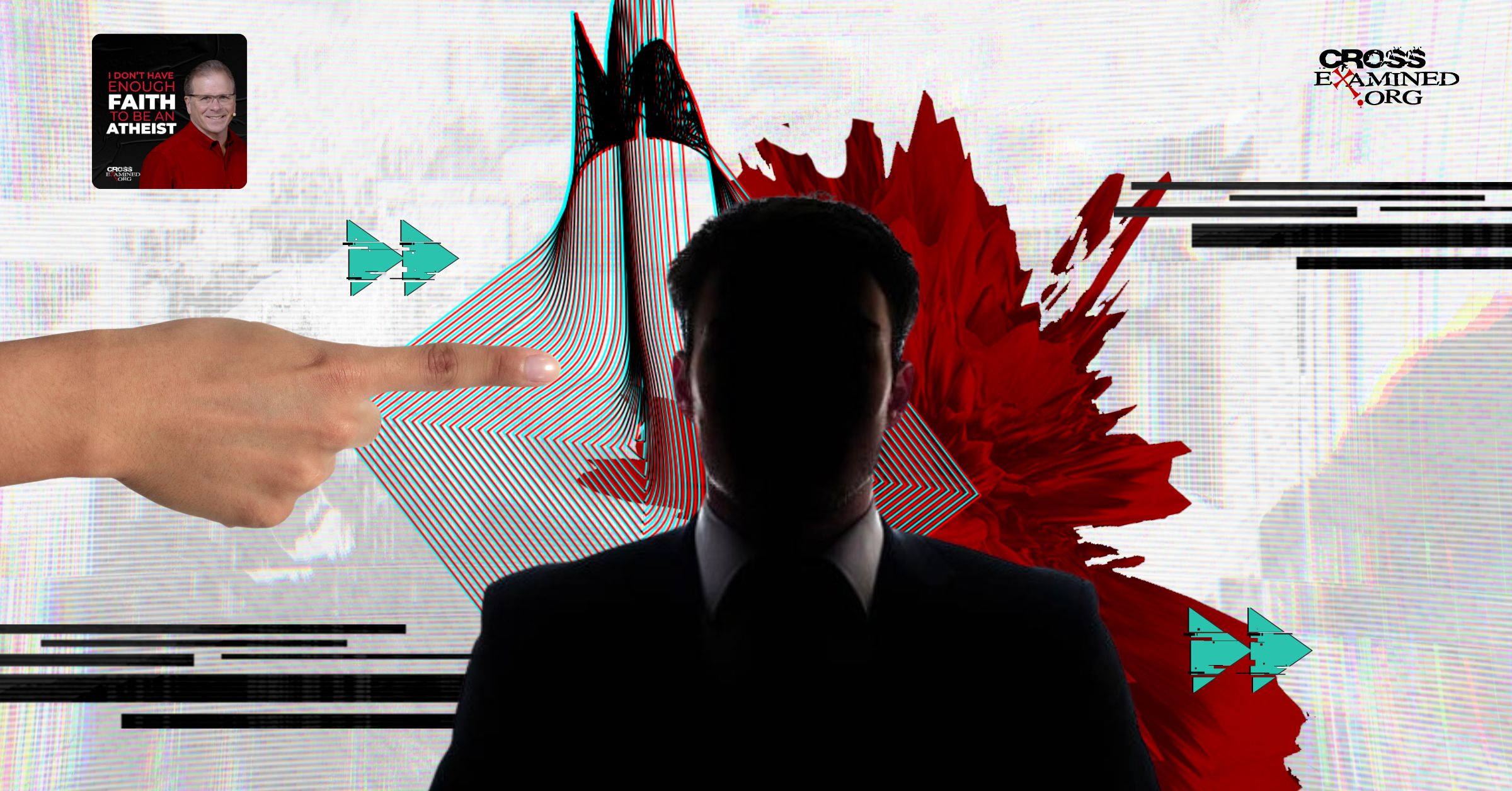Any discussion of the evidence for the resurrection must first ascertain what the original apostolic witnesses claimed and whether those claims are best explained by the resurrection, or by some alternative hypothesis. The contemporary discussion of the case for the resurrection has largely focused around 1 Corinthians 15:3-8, a text believed by many scholars to represent an ancient creedal tradition that Paul had received from the Jerusalem apostles and which he passed on to the believers in Corinth.[i] Paul’s words in verse 11 (“Whether then it was I or they, so we preach and so you believed”) also suggest that the message Paul presented to the Corinthians is the same as that proclaimed by the Jerusalem apostles. A popular criticism of this line of argument is that Paul makes no qualitative distinction between his own experience of the risen Jesus and those of the other apostles, using the Greek word ὤφθη to describe both. [ii]Acts 9:1-9 indicates that Paul’s encounter with the risen Jesus, which took place after the ascension, did not involve the sort of physical interactions we read of the apostles having with Jesus following His death in the gospel accounts. On what basis, then, can we be confident that Paul understands the apostles to have had the sort of experiences with Jesus following His resurrection that we read of in the gospels? If we are not able to determine the nature of the claimed experiences of the risen Jesus, it is very difficult to evaluate the rationality of the disciples’ belief that Jesus had risen from the dead. I am not optimistic that this case can be robustly made from the Pauline corpus alone.
It is undeniable that Luke represents the post-resurrection encounters as involving multiple sensory modes. Jesus appears to multiple individuals at once, and those encounters are not merely visual but are also auditory. Jesus engages the disciples in group conversation. The encounters are close-up and involve physical contact. Moreover, Acts indicates that the appearances were spread out over a forty-day time period – thus, the resurrection encounters were not one brief and confusing episode. If, then, it can be shown that Luke was indeed a travelling companion of Paul, it would be quite surprising if his understanding of the apostolic claim concerning the resurrection differed essentially from that of Paul.
There is an additional reason why Luke’s being a travelling companion of Paul is significant in our investigation of the resurrection, and that is that Luke claims to have been present with Paul during Paul’s visit to the Jerusalem church in Acts 21 when “all the elders [including James] were present” (Acts 21:18). Luke was present with Paul during his imprisonment in Caesarea Maritima (for at least two years), during which time he would undoubtedly have had ample access to the many living witnesses to Jesus’ resurrection, since Caesarea is only approximately 120 kilometres from Jerusalem (where many of the witnesses to Jesus’ resurrection resided). Luke’s acquaintance with the Jerusalem apostles thus puts him in a position to know what was being proclaimed concerning the nature and variety of the post-resurrection encounters with Jesus. Luke’s demonstrated care and meticulousness as an historian also provides some reason (though, as we shall see, not our only reason) to think that Luke is sincerely representing what he believes the apostles experienced.
Was Luke a Travelling Companion of Paul?
There are too many lines of evidence for Luke being a travelling companion of Paul to discuss in any detail in the present paper. However, I will list a few examples. First, there are the famous “we” passages, beginning in Acts 16, which are best understood as indicating the author’s presence in the scenes he narrates. Craig Keener observes that the “we” pronouns trail off when Paul travels through Philippi, only to reappear in Acts 20 when Paul passes once again through Philippi. This is suggestive that the author had remained behind in Philippi and subsequently re-joined Paul when Paul returned through Philippi. [iii]
Second, the reliability of the book of Acts is spectacularly well supported by extrabiblical secular sources, and its author demonstrates a knowledge of the world that is best explained by him being a travelling companion of Paul. Perhaps the most convincing category of this sort of evidence are those cases when the book of Acts is accidentally confirmed – that is, a natural question raised by Acts is illuminated in an incidental way by an extrabiblical secular account. To take one example, consider Acts 23:1-5, when Paul, having been apprehended and brought before the Jewish council, was struck on the mouth at the behest of Ananias the high priest. Paul responds by pointing out the hypocrisy of Ananias. To this, those who were standing by said, “Would you revile God’s high priest?” Paul’s response is somewhat odd: “I did not know, brothers, that he was the high priest, for it is written, ‘You shall not speak evil of a ruler of your people.’” This raises a natural question – why is it that Paul did not realize who the high priest was? This Ananias was the son of Nebedinus (Antiquities 20.5.3), who occupied the office of high priest when Quadratus (Felix’s predecessor) was president of Syria. Josephus reports that he was sent bound to Rome by Quadratus in order to give an account of his actions to Claudius Caesar (Antiquities 20.6.2). As a result of the intercession on their behalf by Agrippa, they were dismissed and returned to Jerusalem. However, Ananias was not restored to his former office of high priest. Ananias was succeeded by Jonathan, as is indicated by the fact that Josephus refers to one called Jonathan occupying the office of high priest during the government of Felix, which would imply that Ananias’ high priesthood was interrupted (Antiquities 20.8.5). Jonathan himself was assassinated inside the temple (Antiquities 20.8.5).
Following Jonathan’s death, the office of the high priest was not occupied until Ismael, the son of Fabi, was appointed by King Agrippa (Antiquities 20.8.8). The events that are recorded in Acts 23 took place precisely in this interval. Ananias was in Jerusalem and the office of the high priesthood lay vacant. It seems, then, that Ananias acted, by his own authority, in the assumed capacity of the high priest. This, then, illuminates Paul’s words in Acts 23:5: “I did not know, brothers, that he was the high priest.” Luke doesn’t even take the time to explain the historical backstory in his account of this event. The sources interlock in a way that points to the truth of the narrative we find in Acts.
Another category of evidence, first discovered by William Paley [iv]and more recently developed by Lydia McGrew, [v]is the phenomenon of undesigned coincidences between Acts and the letters of Paul – that is, interlockings between the sources that are best explained by the truth of the narrative in Acts. Consider Paul’s first letter to the Corinthians, which was written around 52-53 A.D from Ephesus in Asia Minor (modern day Turkey). We know Paul wrote 1 Corinthians from Ephesus because Paul sends greetings from Aquilla and Priscilla in 1 Corinthians 16:19, whom Paul had met in Corinth (Acts 18:1), and who travelled with Paul as far as Ephesus (Acts 18:26). Paul also makes an allusion to his intention to “stay in Ephesus until Pentecost” (1 Cor 16:8). Corinth, the capital city of Achaia, on the other hand, was across the Aegean sea from Ephesus. Now, consider the following two texts from 1 Corinthians. In 1 Corinthians 4:17 we read: “That is why I sent you Timothy…” And in 1 Corinthians 16:10, we read, “When Timothy comes…” From those two incidental texts, it is evident that Timothy had already been dispatched by the time of Paul’s writing, but nonetheless that Paul expected his letter to arrive before Timothy got to Corinth. Given that Ephesus is directly across the Aegean Sea from Achaia (where Corinth is), presumably Paul would have sent his letter directly by boat from Ephesus to Corinth. We therefore can infer that Timothy must have taken some indirect route to Corinth, through Troas and Macedonia. When we turn over to Acts 19:21-22, which concerns Paul’s stay in Ephesus, we read that Timothy (accompanied by Erastus) did in fact take such an indirect overland route to Corinth from Ephesus. This artless dovetailing is best explained by the historical reliability of Acts on this detail. Even if, as I have suggested above, Luke was not present with Paul at this time, this sort of evidence indicates that Luke had reliable access to information concerning Paul’s travels, which suggests he was personally acquainted with Paul.
Of particular interest for our purposes here, a cluster of confirming evidences bear on Luke’s presence with Paul at the Jerusalem church in Acts 21. [vi] If it can be reliably shown that Luke accompanied Paul on his shipwrecked voyage from Caesarea Maritima to Rome in Acts 27, it follows that Luke was almost certainly present with Paul in Jerusalem (where he was arrested) in Acts 21. The report of that voyage notes that they “…sailed along Crete, close to the shore. But soon a tempestuous wind, called the northeaster, struck down from the land.” In confirmation of Luke’s report, there is indeed a well confirmed wind that rides over Crete from the Northeast and which is strongest at this exact time near Passover. [vii] Acts 27:16 describes how the ship was blown off course towards a small island called Cauda. What’s impressive is that the island of Cauda is more than 20 miles west-southwest of where the storm likely struck the travelers in the Bay of Messara. This is precisely where the trajectory of a northeaster should have carried them, and it is not the sort of information someone would have inferred without having been blown there. Ancients found it nearly impossible to properly locate islands this far out. Colin Hemer notes that “In the places where we can compare, Luke fares much better than the encyclopaedist Pliny, who might be regarded as the foremost first-century example of such a source. Pliny places Cauda (Gaudos) opposite Hierapytna, some ninety miles too far east (NH 4.12.61). Even Ptolemy, who offers a reckoning of latitude and longitude, makes a serious dislocation to the northwest, putting Cauda too near the western end of Crete, in a position which would not suit the unstudied narrative of our text (Ptol. Geog. 3.15.8).” [viii]
Given Luke’s presence with Paul in Jerusalem in Acts 21 (and thus his demonstrated interaction with the Jerusalem apostles), we can conclude that Luke was in a position to know what was being claimed by the Jerusalem apostles in regard to the nature of the encounters with the risen Jesus. The next question we must address in our investigation is whether Luke faithfully records what those Jerusalem apostles were teaching concerning the resurrection.
Does Luke Accurately Report the Claimed Experiences of the Apostles?
I have previously noted that Luke’s demonstrated meticulousness and care as an historian already provide some reason to think that Luke has given an accurate report of what the Jerusalem apostles claimed concerning the resurrection of Jesus. Are there any other reasons? One relevant evidence here is the fact that Luke, like the other three gospels, reports that women were the chief discoverers of the empty tomb. Given that the testimony of women was not highly esteemed in the patriarchal society that was ancient Palestine, this fact is more probable on the hypothesis that Luke is reporting what he really believed happened than on the falsehood of that hypothesis. Josephus writes, “But let not the testimony of women be admitted, on account of the levity and boldness of their sex,” (Antiquities 4.8.15). It therefore may be taken as evidence confirmatory of the hypothesis that Luke is telling us what he really believed happened. N.T. Wright concludes, “As historians we are obliged to comment that if these stories had been made up five years later, let alone thirty, forty, or fifty years later, they would never have had Mary Magdalene in this role. To put Mary there is, from the point of view of Christian apologists wanting to explain to a skeptical audience that Jesus really did rise from the dead, like shooting themselves in the foot. But to us as historians this kind of thing is gold dust. The early Christians would never, never have made this up.” [ix]
Caution, however, is warranted here, since there is a tendency among apologists to overstate the evidential significance of this fact. One can reasonably posit alternative explanations for why the gospels report the discovery of the empty tomb by women. Bart Ehrman, for example, points out that “women were particularly well represented in early Christian communities”, and it is therefore somewhat plausible that they invented the oral traditions involving the discovery of the empty tomb. [x]Furthermore, Ehrman notes, “Preparing bodies for burial was commonly the work of women, not men. And so why wouldn’t the stories tell of women who went to prepare the body? Moreover, if, in the stories, they are the ones who went to the tomb to anoint the body, naturally they would be the ones who found the tomb empty.” [xi] Furthermore, women could provide legal testimony under Jewish law if no male witnesses were available. In fact, Josephus appeals to women as his only witnesses of what took place inside Masada or at the battle at Gamala (Jewish War 7.389 and 4.81), though that may likewise be taken as an indication of Josephus reporting truthfully. Another important consideration is the fact that we are told of the woman whom Jesus spoke with at the well of Samaria that “Many Samaritans from that town believed in him because of the woman’s testimony, ‘He told me all that I ever did,’” (Jn 4:39).
Thus, the fact that the gospels have women as the primary witnesses to the empty tomb does not prove the tomb was empty and care should be taken not to overstate the case. Nevertheless, the reports of the women being the chief discoverers of the empty tomb is antecedently more likely on the assumption that what the gospels report is based in historical fact than on the assumption the authors made it up. Thus, while the testimony of the women may not be sufficient to demonstrate the veracity of the empty tomb reports, it does offer evidence to that effect.
An important point here, often overlooked, is that the accounts in the four gospels of the women discovering the empty tomb are in fact independent. Luke 24:10 says, “Now it was Mary Magdalene and Joanna and Mary the mother of James and the other women with them who told these things to the apostles…” It is often suggested that John 20:1, which reports only Mary Magdalene’s discovery of the empty tomb, conflicts with Luke’s account. However, in John 20:2, we read, “So she [Mary] ran and went to Simon Peter and the other disciple, the one whom Jesus loved, and said to them, “They have taken the Lord out of the tomb, and we do not know where they have laid him” [emphasis added]. Mary’s word-choice, in particular the use of οὐκ οἴδαμεν (“we do not know”) indicates, quite incidentally, that there were in fact other women, and John’s report of these words reveals that he also is aware of this fact even though it is not mentioned explicitly. Thus, Luke’s and John’s account of the women discovering the empty tomb appear to be independent of each other.
Matthew and Mark also appear to be independent of Luke when it comes to the women’s discovery of the empty tomb. [xii] Luke indicates in Luke 8:1-3 that some women followed Jesus from Galilee, including Joanna, the wife of Chuza, Herod’s household manager. This detail is confirmed by an undesigned coincidence with Matthew 14:1, since it illuminates how the author of Matthew’s gospel might know what Herod had said to his servants, presumably in the privacy of his palace. The names given in Luke’s list are Mary, Joanna, and Susanna, as well as “many others,” (Lk 8:2-3). Mark, describing the women who were “looking on from a distance” at the crucifixion, lists “Mary Magdalene, and Mary the mother of James the younger and of Joses, and Salome,” (Mk 14:40). These names overlap only partially with those given in Luke 8. There is no mention in Mark of Joanna or Susanna, and Luke does not mention Mary the mother of James or Salome. It does not appear that Luke added the passage in chapter 8 in order to “put” the women in place earlier in Jesus’ ministry and thus fit his narrative together with Matthew and Mark concerning the women at the cross, because the names are only partially the same. Luke would have presumably included Mary the mother of James, and Salome, and probably left out Susanna if he had fictionalized the verses in chapter 8 on the basis of Mark’s mention of the women at the cross. Luke himself mentions the women who came from Galilee at the cross and burial (23:49, 55) but doesn’t even name any of them there. Both accounts, therefore, confirm apparently independently that there was a group of women who had begun following Jesus in Galilee and who continued to do so and who helped Jesus in concrete ways (“ministering” or “providing”). In Luke 24:6-10, the angels tell the women at the empty tomb, “Remember how he told you, while he was still in Galilee” (v. 6). This makes it clear that these women really were personally with Jesus in Galilee and heard what He said there. When Luke names various women who brought the disciples news of the empty tomb and the message of the angel (24:10), he names Mary Magdalene, Mary the mother of James, and Joanna (and says there were other women as well). Once again, he doesn’t seem to be trying to reproduce his own list from chapter 8, for Mary the mother of James was not in that list, and Susanna isn’t mentioned in 24:10. Nor is he reproducing Mark’s list of women at the cross nor Mark’s list of women who came to the tomb (Mk 16:1), since Salome isn’t included in Luke’s list, and Joanna (who is unique to Luke) is not included in Mark’s list. Luke seems to be listing women whom he really knows were present for the events on Easter morning. Evidently, he is not sure about Susanna’s presence or just does not bother to mention her, and he knows that Mary the mother of James was there on Easter morning even though she is not listed in his chapter 8. Thus, this is also an undesigned coincidence internal to Luke, a way in which fairly distant parts of Luke’s own narrative fit together in an apparently casual and non-deliberate way: Mary Magdalene, Joanna, and various other women were with Jesus in Galilee and heard there Jesus’ own prediction of his crucifixion and resurrection. They subsequently went with him to Jerusalem and were present at the cross, burial, and empty tomb.
Another category of evidence bearing on the case for the resurrection is the phenomenon of reconcilable variations, so-named by the nineteenth century Anglican scholar Thomas Rawson Birks. [xiii] A reconcilable variation refers to when there exist two accounts of the same event, or at least two accounts that appear to cross over the same territory at some point, and at first blush they seem so divergent that it is almost awkward; but then, on further thought, they turn out to be reconcilable in some natural fashion after all. When two accounts appear at first so divergent that one is not sure they can be reconciled, that is significant evidence for their independence. When they turn out, upon closer inspection or upon learning more information, to be reconcilable without forcing after all, one has almost certainly independent accounts that dovetail.
Multiple instances of reconcilable variation pertain to the resurrection accounts. For example, it is popularly observed that Luke 24:36-49 reports Jesus as having appeared to “the eleven” who were all present together at the time (see vs. 33). This, so the argument goes, does not allow for Thomas’ absence from the group at the time of the appearance (as in John), nor a subsequent appearance to the disciples with Thomas present. Furthermore, John tells us that the appearance to the eleven with Thomas present occurred eight days later, whereas Luke seems to indicate that the ascension took place immediately after the appearance to the eleven. Luke 24:50-51 tell us, “Then he led them out as far as Bethany, and lifting up his hands he blessed them. While he blessed them, he parted from them and was carried up into heaven.” One possible reply is that “the eleven” is being used as a figure of speech, much as “the twelve” is used in that way by Paul (see 1 Cor 15:5). I do not, however, find this approach to be the most convincing, since it seems to be rather ad hoc, and there is no independent evidence that Luke used the term “the eleven” in this way. It also would not explain the apparent immediacy of Jesus’ ascension following the appearance to the eleven, allowing apparently no time for a subsequent appearance to the disciples with Thomas present. In response to this objection, it may be pointed out that, at the end of Luke, there is clear haste and a lack of specificity about time. Indeed, Luke 24:29 states that the men on the road to Emmaus pressed Jesus to stay with them for dinner because it was already evening and the day was “far spent.” We do not know what that means exactly, but it hardly meant three in the afternoon. Jesus then goes in with them; dinner is prepared, however long that took, and they sit down to eat. They recognize him as he breaks bread, and he disappears. They then immediately go back to Jerusalem, a distance of 60 stadia (Lk 24:13), which looks like it was about 10-12 km – that is, about 6 to 7 miles. This walk would take well over an hour, perhaps as long as two hours. They then chat with the disciples for a while and tell their story (vs. 35). Then Jesus appears and shows himself. They give him some food (vs. 42). Only after this does Jesus begin talking to them about the Scriptures, giving them some sort of sermon about how his death was foretold in the Scriptures (vss. 45ff). How long did that take? Jesus then leads them out to Bethany, a mile or two walk (c.f. Jn 11:18). If one tries to put this all on the same evening, it really looks like it would already be dark by that time, making it difficult for them even to witness the ascension into heaven (vs. 51). So even in Luke 24 alone, it does not look like all of this happened in one day. Evidently, Luke is either running out of scroll or in a hurry at that point, and he doesn’t appear to have full knowledge yet of exactly how long Jesus was on earth. Thus, he simply leaves it non-specific and clarifies in Acts 1.
It is also popularly alleged that Matthew has Jesus appear to the disciples only in Galilee (not in Judea), and the gospel of Luke and Acts have Jesus appear to his disciples only in Judea (not in Galilee). I would argue, however, that it is entirely plausible that Jesus’ instruction to remain in Jerusalem (Acts 1:4) was said to the disciples after they had returned to the Jerusalem area from Galilee during the 40 days on which Jesus remained on the earth, perhaps shortly or even immediately prior to the ascension. By all accounts, the ascension occurred from the region of the Mount of Olives near Bethany, so evidently, they went to Galilee and then came back.
Yet a further line of evidence for Luke’s honest reporting of the apostles’ claims concerning the resurrection comes from the principle of restraint. Not one of the gospels provides any details concerning the appearance of Jesus individually to Peter or to his brother James, despite the fact that Paul mentions both in 1 Corinthians 15:5,7. Luke is certainly aware at least of the appearance individually to Peter because he alludes briefly to it in passing in Luke 24:33-34. Why, then, does he not include an account of this appearance? This can be explained if Peter and James had both made it known that they had had an encounter with the risen Lord following the resurrection, but, for whatever reason, neither had made an account of this private meeting available for publication. Indeed, “if the Gospel writers were trying truthfully to record only what they either knew directly or had reliable sources to tell them about, they would have very little to say about such meetings, exactly as we find. But if they felt free to invent dialogue and scenes in order to fill in where information was otherwise missing, why would they not have done so here? Their restraint points to the conclusion that they are truthful, reliable recorders.” [xiv]
Thus, from the aforementioned lines of evidence, taken cumulatively, we can be confident that not only was Luke in a position to know what was being claimed by the apostles concerning the resurrection of Jesus, but Luke accurately records what they reported. What, though, best explains the apostles’ claims to have had encounters with the risen Jesus? It is to this question that I now turn.
What Best Explains the Apostles’ Claim?
When evaluating any claim, three broad categories of explanation must be considered. Those are, (1) the claimant is deliberately deceiving; (2) the claimant is sincerely mistaken; and (3) the claimant is accurately reporting what happened. Those broad explanatory categories are mutually exhaustive (though one can envision scenarios where they are applicable in combination). The various lines of evidence adduced in the previous section of this paper may be brought to bear not only in confirming Luke as a faithful reporter of what the apostles claimed concerning the resurrection, but also in eliminating the first of those hypotheses stated above. Additional lines of evidence may, however, be adduced to further strengthen our case against the first hypothesis. It is beyond doubt that the “apostles passed their lives in labours, dangers, and sufferings, voluntarily undergone in attestation of the accounts which they delivered, and solely in consequence of their belief of those accounts; and that they also submitted, from the same motives, to new rules of conduct.” [xv] The book of Acts itself speaks of the intense persecution endured by the early Christians, including the martyrdom of James the son of Zebedee (Acts 12:2), the imprisonment of Peter (Acts 12:3-5), the beating of Peter and John (Acts 5:40), and the many sufferings of the apostle Paul for the name of Christ. Since the apostles’ willingness to suffer persecution and even martyrdom is more probable given the sincerity of their belief than otherwise, this may be taken as evidence disconfirming the first hypothesis, that they were deliberately setting out to deceive.
A further line of evidence against the first hypothesis is no known sect of Judaism was expecting the Messiah to be raised from the dead. [xvi] The Sadducees had no belief in the resurrection of the dead and the Pharisees believed only in a general resurrection at the end of time, but had no concept of one man rising to glory and immortality in the middle of history. There was therefore no obvious apologetic motivation for positing that Jesus had been raised from the dead. The crucifixion of Jesus was seen by many Jews, in light of Deuteronomy 21:23, as indicating Jesus’ failure to be the awaited Messiah, and Jews were hardly given to glorifying failed Messiahs. After the failed rebellion of Simon Bar Kochba against Rome (132-135 A.D.), nobody proclaimed that he had risen from the dead.
Other factors that argue against any hypothesis of conspiracy include the speed at which a conspiracy would have needed to get off the ground, as well as the number and variety of individuals who would have needed, against their own interests, to be involved in such a conspiracy. [xvii] This included the eleven, the apostle Paul, at least five or six women, Cleopas and his companion, James the brother of Jesus, Matthias and Barsabbas called Justus (who are both named in Acts 1:23 as fulfilling the requirements of an apostle, i.e. having been witnesses to the resurrection). Being conservative, therefore, and including only those individuals who are specifically named, there would have needed to be at least 23 individuals involved in the conspiracy. It is extremely improbable that all of those individuals had something to gain by asserting that Jesus had risen from the dead and that none of them would have reneged.
What, then, of the second hypothesis, namely, that the apostles were sincerely mistaken? I have already discussed how the multisensory nature of the claimed resurrection experiences is not something about which one might plausibly be honestly mistaken. There exists yet another line of evidence against that hypothesis. Jesus’ resurrection is said in all of the earliest sources to have taken place on the Sunday morning following His death at Passover. This is indicated in all four gospels as well as Paul, who indicates that Christ “was raised on the third day in accordance with the Scriptures” (1 Cor 15:4). The evidence from the early church writings as well as the Roman writer Pliny the Younger (10.96.7), the book of Revelation (1:10), the book of Acts (20:7) and Paul (1 Corinthians 16:2) all indicate that early Christian worship took place not on the Sabbath day but on Sunday instead. This almost certainly reflects the apostolic claim that Jesus rose again on the Sunday. But why does Paul indicate that the Christ “was raised on the third day in accordance with the Scriptures” (this is also indicated in Lk 24:7). The point at which Paul, I would suggest, is driving is that Christ represents the first man to be raised to glory and immortality, similar to the first fruits of the harvest that guarantees that the remainder of the harvest will come (c.f. 1 Corinthians 15:20). Indeed, the feast of first fruits was to be celebrated the day following the first Sabbath following the Passover – that is, the Sunday following Passover (Lev 23:11). Although the Pharisees and Sadducees disagreed over whether the Sabbath in question was the Day of Passover itself or the Sabbath following the Passover, the Sadducees (who took the latter view) were in charge of the temple in the first century and thus that was the view that prevailed in first century Jewish practice. It is quite the coincidence then that the earliest sources consistently indicate that Jesus rose from the dead on the day of first fruits, given its theological import. This sort of coincidence points to design, and thus away from the hypothesis of the apostles being honestly mistaken.
Conclusion
Having argued strongly against the first two explanatory categories, this leaves as the best explanation of the evidence discussed in this paper the one the angels themselves gave the disciples in Luke 24:5-6: “Why do you seek the living among the dead? He is not here, but has risen.”
Footnotes:
[i] Michael Licona, The Resurrection of Jesus – A New Historiographical Approach (Illinois: Intervarsity Press, 2010), 318-343.
[ii] Gerd Lüdemann, The Resurrection of Christ: A Historical Inquiry (New York: Prometheus, 2004), 43-44.
[iii] Craig Keener, Acts: An Exegetical Commentary, Vol. 1 (Michigan: Baker Academic, 2012), 431.
[iv] William Paley, Horae Paulinae or, the Truth of the Scripture History of St. Paul Evinced (In The Works of William Paley, Vol. 2 [London; Oxford; Cambridge; Liverpool: Longman and Co., 1838].
[v] Lydia McGrew, Hidden in Plain View: Undesigned Coincidences in the Gospels and Acts (Tampa, FL: Deward Publishing Company, Ltd, 2017).
[vi] James Smith, The Voyage and Shipwreck of St. Paul: With Dissertations on the Life and Writings of St. Luke, and the Ships and Navigation of the Ancients, Fourth Edition, Revised and Corrected (London: Longmans, Green, and Co., 1880). See also Craig Keener, Acts: An Exegetical Commentary, Vol. 4 (Michigan: Baker Academic, 2015), 3555-3660.
[vii] R.W. White. “A Meteorological Appraisal of Acts 27:5-26.” The Expository Times 113, no. 12 (September 2002), 403-407.
[viii] Colin Hemer, The Book of Acts in the Setting of Hellenistic History (Indiana: Eisenbrauns, 1990), 331.
[ix] Tom Wright, “Appendix B”, in Anthony Flew, There is a God: How the World’s Most Notorious Atheist Changed His Mind (2007) with Roy Abraham Varghese (San Francisco: Harper One), 207.
[x] Bart D. Ehrman, How Jesus Became God: The Exaltation of a Jewish Preacher from Galilee (New York: HarperOne, 2014), kindle.
[xi] Ibid.
[xii] Lydia McGrew, The Mirror or the Mask: Liberating the Gospels from Literary Devices (Tampa, FL: Deward Publishing Company, Ltd, 2019), 272-282.
[xiii] Thomas Rawson Birks, Horae Evangelicae, or The Internal Evidence of the Gospel History (London: Seeleys, 1852). See also Lydia McGrew, The Mirror or the Mask: Liberating the Gospels from Literary Devices (Tampa, FL: Deward Publishing Company, Ltd, 2019), 316–321.
[xiv] Lydia McGrew, Hidden in Plain View: Undesigned Coincidences in the Gospels and Acts (Ohio: DeWard Publishing Company, 2017), chap. 4, Kindle.
[xv] William Paley, A View of the Evidences of Christianity: Volume 1, Reissue Edition (Cambridge: Cambridge University Press, 2009), 15.
[xvi] Tom Wright, The Resurrection of the Son of God (Minneapolis, Augsburg Fortress, 2003).
[xvii] Lydia McGrew, “Independence, conspiracy, and the resurrection”, Extra Thoughts, August 24th, 2020. http://lydiaswebpage.blogspot.com/2020/08/independence-conspiracy-and-resurrection.html
Recommended Resources Related to the Topic
The Resurrection of Jesus: The Tomb is Empty, Our Hope Is Not by Gary Habermas and Michael atton (Self-Paced Course)
Examining Historical Evidence for the Resurrection with Mike Licona (Podcast)
Doubting towards Faith by Bobby Conway (Self-Paced Course)
Jesus, You and the Essentials of Christianity by Frank Turek (INSTRUCTOR Study Guide), (STUDENT Study Guide), and (DVD)
The Footsteps of the Apostle Paul (mp4 Download), (DVD) by Dr. Frank Turek
____________________________________________________________________________________________________________________________________________________
Dr. Jonathan McLatchie is a Christian writer, international speaker, and debater. He holds a Bachelor’s degree (with Honors) in forensic biology, a Masters’s (M.Res) degree in evolutionary biology, a second Master’s degree in medical and molecular bioscience, and a Ph.D. in evolutionary biology. Currently, he is an assistant professor of biology at Sattler College in Boston, Massachusetts. Dr. McLatchie is a contributor to various apologetics websites and is the founder of the Apologetics Academy (Apologetics-Academy.org), a ministry that seeks to equip and train Christians to persuasively defend the faith through regular online webinars, as well as assist Christians who are wrestling with doubts. Dr. McLatchie has participated in more than thirty moderated debates around the world with representatives of atheism, Islam, and other alternative worldview perspectives. He has spoken internationally in Europe, North America, and South Africa promoting an intelligent, reflective, and evidence-based Christian faith.
Original Blog Source: https://bit.ly/3LXLOpW


